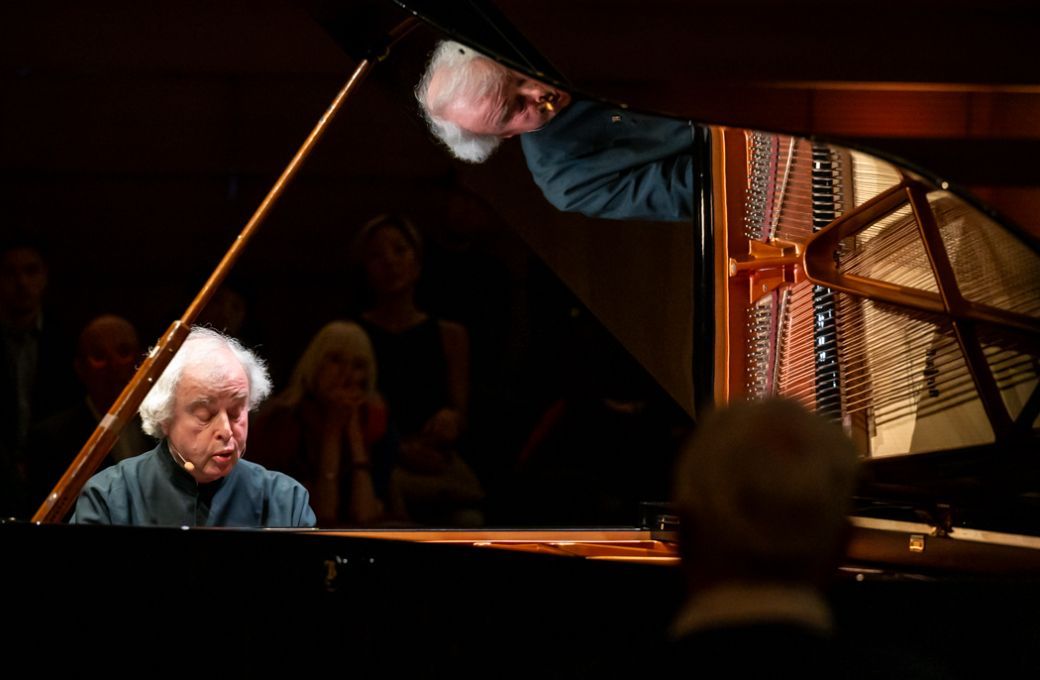Just ten minutes longer and Sir András Schiff’s epic concert at Koerner Hall – his seventh in the 14 years the Hall has been open – would have beaten the production of King Lear I attended a week earlier in Stratford, Ontario. Schiff’s programme may not have contained as many deaths and tribulations, but it was certainly full of drama and surprises, especially as these days the soon-to-be 70-year-old refuses to announce his programme prior to his recitals. “Since Covid, I’ve acquired a new habit of trying to refresh classical music,” he explained from the stage, claiming that concerts have become very predictable. “You wouldn’t like to know what you are having for dinner in two years’ time…”

In the absence of a programme and programme-notes, Schiff turned the event into something akin to a lecture-recital – epic in length but also intimate in tone – wherein each piece was preceded by his explanatory remarks, contextualising and even introducing musical snippets at the piano. The exception was the opening Bach C major Prelude and Fugue, which was also the only part of the concert that felt a little flat. Was this Schiff simply warming up or trying to emulate the limitations of the clavichord, an instrument he has come to love in recent years? Whatever the cause, by the time of the Fugue, freedom and spontaneity, paired with his hallmark contrapuntal intelligence, had properly settled in, and these qualities continued to impress in the two following Bach pieces: the charming early Capriccio on the Departure of a Beloved Brother and the formidable Chromatic Fantasy and Fugue.
Reviewing Schiff’s recent Bach recording on the clavichord, which includes both latter works, I compared the experience to the opening up of a new world, courtesy of a master-cleanser who unclogs our minds and ears from the burden of overtly statement-making performances. Schiff was equally revelatory on the modern full-sized Bösendorfer, his favourite “Viennese accent”-ed instrument, as he put it, with its warm, mellow middle and bass range that perfectly suited his pianism and (most of the) programme. For the espressivo questionings of Haydn’s Variations in F minor, Schiff told us that for him, “If Mozart composed in poetry, Haydn did so in prose.” Yet this was the most poetic prose imaginable.
Haydn’s dramatic contrasts – symbolic of Earth and Heaven, according to Schiff – then gave way to Schumann’s whirlwind face-off between his two alter-egos in Davidsbündlertänze. Here the extrovert Florestan was tempestuous without being weighed down, whimsical without being sarcastic; but it was the hypnotic dreamlands of Eusebius that stole the show, an object lesson in Schumann’s requested Innigkeit (inwardness). Only occasionally did the instrument’s under-powered mid-treble register get in the way of clarity.
Among other things, this was a masterclass in efficient, minimal pedalling, which enabled translucency even in the midst of complex counterpoint, as in Mendelssohn’s feverish, Bach-inspired Variations sérieuses^. That made it all the more remarkable when the pedals were deployed for expressive effect in Schumann and Beethoven. Schiff carefully used the words “supposed to” about the contested Shakespeare-related genesis of the “Tempest” Sonata. Yet the sheer freedom and inventiveness, the dramatic power and structural depth of each movement, the mesmerising mysteries of the finale (all too often reduced to an étude) certainly deserved the label “Shakespearean”.


